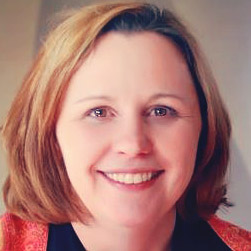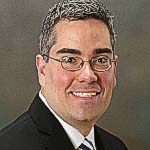1. Would it be possible for me to combine my children in some of the same academic subjects, such as science, history, and religion?
2. I find it difficult to find time to teach science. Do I need to teach science to my 4th grader?
3. I would like to send my children’s book reports for a counselor to give suggestions before I send them to be graded.
4. How much time should I be teaching each child each day? I have a high school student, a 7th grader, and a 3rd grader.
5. My daughter is having trouble when she takes the algebra tests. Is there any way I can help her without taking the course myself?
6. The DRE at my parish said that for my daughter to receive First Holy Communion, I need to use a catechism on the approved USCCB list.
7. Would it be possible for me to combine my children in some of the same academic subjects, such as science, history, and religion?
8. We recently participated in a survey administered by Seton’s accrediting agency. We were glad to provide our feedback and are curious to know what happens next.
1. What should I do if my books don’t arrive when expected?
Yes, many parents do that for children in adjacent grades. You need to be careful about there being too much of a difference in comprehension. In religion, you can certainly discuss the same subject, such as a particular sacrament, but when it comes to memory work or testing, unless they are close in abilities, you should use the test appropriate for each child’s grade level. For instance, you may teach two students with the same religion book if they are both in Baltimore Catechism No. 2, but you may have the younger child take the tests for the No. 1 book.
In history and science, enroll them in the same grade level course, but you may need to make up a lower level test for the younger child.
For high school, we encourage parents to enroll two or more students in the same courses whenever possible, such as for history, science, literature, and others which are not dependent on a previous course.
2. I find it difficult to find time to teach science. Do I need to teach science to my 4th grader?
You should teach science at every grade level, but the depth and the amount can be adjusted according to the ability and interests of the student. You don’t necessarily need a formal science class. The science book could be read in the car and discussed by the family, even on short trips to the store. You may want the children to watch the Mr. Wizard DVD videos (for sale through Seton catalog) which present hands-on activities and experiments. Seton sells science kits, which parents and grandparents often purchase as birthday presents. Science experiments are often fun and very educational. Many cities have science museums, which kids love because they are usually very interactive and encourage children to handle the exhibits.
3. I would like to send my children’s book reports for a counselor to give suggestions before I send them to be graded.
Parents sometimes want the counselors to “pre-grade” book reports or other assignments before they are submitted for an official grade. While our counselors try to help as much as they can, as a practical matter, there is simply not enough time for them to pre-grade in this way.
Our lesson plans for book reports are very detailed, and have become more detailed over the years. We have worksheets to prepare students for their book reports, copies of which are online under Reading Resources for each grade level. Parents should be able to check over their children’s book reports or paragraphs based on the comments in the lesson plans.
4. How much time should I be teaching each child each day? I have a high school student, a 7th grader, and a 3rd grader.
Unlike a classroom situation, where the state has determined how many minutes to spend on each subject, homeschooling is all about adjusting the program to the needs and abilities of the child. One child may need more time on math, another child may need less on math. This applies to every child and every subject. We do give the likely times for a child for each subject at that grade level, but those are just suggestions.
A child in 3rd grade, for example, should not spend more than a half hour on math at one sitting. If the child needs more time, it should be broken up into two sessions in a day. An average child in 7th grade should spend 40 to 45 minutes on math. A high school student likely averages an hour on algebra or geometry class, with maybe extra time on a weekend for review.
Usually a parent discovers pretty quickly the subjects a child does more quickly and accurately, and those subjects that need more study or extra practice. Some subjects—such as art, music, and physical education—can be something very informal on Saturday or Sunday afternoon, maybe something the family members do together.
Workbook courses—such as spelling and vocabulary—can often be done by students in fifteen minutes per day. The reading workbooks demand more concentration for more complex ideas, so those assignments may take 20 to 25 minutes.
The subjects that must be done with great attention are religion and math, as well as English grammar, reading, paragraph writing, and book reports. The reading, thinking, and writing skills should be applied in the science and history courses, which may take 30 to 40 minutes depending on the assignment.
Seton recently conducted a survey of families to determine if more time spent on schooling translated to more educational success. We found that more time does help, up to a point, but that there is no absolute relationship between time and success. What is important is not necessarily spending more time, but spending the right amount of time for your children and your family. What amount of time is right is something which only you can determine.
5. My daughter is having trouble when she takes the algebra tests. Is there any way I can help her without taking the course myself?
You can review the kinds of questions that are on the test and then have her review and re-do the same kinds of problems from the book. It is important, especially in high school, that the test grades reflect the actual work and ability of the student, and not a grade based on a parent helping to solve the problems during the test. Colleges especially want the grades to reflect the knowledge and ability of the student.
We do have tutorial software for each lesson in the Saxon books. Perhaps if she uses those, which can be played over and over again, they might help her to gain a better understanding of some of the concepts. We have been told by some students that they did not do well just with the book, but once they viewed the software, the concepts became much clearer. The software is available on our www.setonbooks.com website.
The work seems too easy for my fourth grader. I think he could skip fourth grade and do the fifth grade work.
It is not unusual when the next grade level begins for the work to seem easy because many of the first month’s concepts are often a review of the previous year. However, over the years, we have found that it is usually not a good idea for a student to skip a grade, even for one subject. In each grade, there are new concepts which need to be learned for the following grade level. In homeschooling, the student can advance at his own rate, course by course. Let your son do the fourth grade work at his own pace, subject by subject. If he finishes a subject by January and asks for the next grade level course in math, for instance, you can order the math at that time. We have seen too many students pushed ahead and, at some point, find they are not able to handle the material. Our experience is that when students are older and struggling in high school, they often wish they were not pushed ahead in an earlier grade level.
6. The DRE at my parish said that for my daughter to receive First Holy Communion, I need to use a catechism on the approved USCCB list.
The USCCB list is for diocesan schools. According to Canon Law (see especially Canon 793), parents have fundamental rights to use the educational “means and institutions” of their choosing. For your parish to restrict the means you choose to only those on the approved USCCB list is to violate your rights under Canon Law. Most likely, the DRE is not aware of the Canon involved, and is not trying to usurp your parental authority. You may want to incorporate (or at least secure a copy of) some of the “approved” materials, so that you can honestly say you used them.
The Catholic Book Publishing Company and the many books by Father Lovasik have the Imprimatur, so parents can certainly use those books, which have been popular for likely millions of families for decades.
In fact, parents can teach by good example, and by their own words, just as the first Apostles did. Some parents and classroom teachers use videos and movies about saints, not textbooks. We sell a video with an outstanding priest, Father Pablo Straub, who teaches catechism lessons to children. Seton and other publishers of Catholic catechisms need only to have the Imprimatur from a bishop, according to the Code of Canon Law.\
7. We recently participated in a survey administered by Seton’s accrediting agency. We were glad to provide our feedback and are curious to know what happens next.
First of all, we want to thank all the parents who participated in the Parent Survey that went out last month. We had over 2000 responses, which amounts to roughly 34 percent, a number very close to what we wished to achieve. Right now, the responses are being sorted, so that Seton can determine if there are areas that need to be addressed. Overall, though, your responses placed Seton in a very high bracket, and we expect that your feedback will go a long way toward helping us maintain our accreditation. We’ll have more precise data on the survey in the coming weeks and months.
The next step in this process is for the students to take a survey. This survey may be proctored by parents. The survey will look very much like the Parent Survey, will be administered the same way, and will likewise retain anonymity. We encourage you to permit your students to participate, but recognize that the final decision is the parents’ decision. We expect to initiate the survey at the beginning of October.
Again, we thank all of our families for all the work you put in on a daily basis, as well as all the survey participation and collaboration with Seton on efforts that are crucial to maintaining our accreditation. You are helping us be the very best school we can be!
8. What should I do if my books don’t arrive when expected?
Almost all enrollment boxes are shipped with UPS. When the books go out by UPS, our system automatically sends an email notification of shipment. If you received the email, you can use the tracking number in the email to determine the delivery date for your materials.
If you did not receive an email yet, then your books probably have not shipped, and may still be in process. We may be waiting for an item, such as a standardized test, before completing the processing. If you think your books should have arrived, or you are unsure of the next step in the process, you may contact our admissions department or customer service department by phone or email.

 Seton Magazine Catholic Homeschool Articles, Advice & Resources
Seton Magazine Catholic Homeschool Articles, Advice & Resources











































